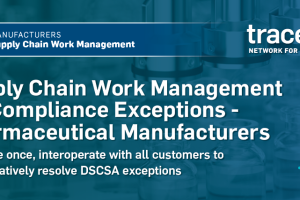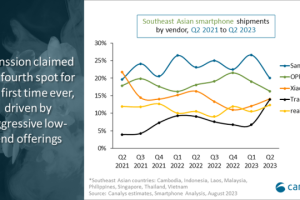Says, Shrikant Soman, CEO, Bhatia Hospital, in an interaction with Ekta Srivastava, Healthtechnology.in
What are the centers of excellence at Bhatia hospital?
Centres of Excellence at our hospital are very strong department of Ortho surgeries wherein all replacement of joint surgeries, Spine Instrumentation and total Traumatic surgeries performed by international famous Ortho Surgeons attached to our hospital.
We have excellence of Laproscopic Surgeons and minimal invasive Surgeons.
What is your opinion on the emergence & growth of corporate hospital?
Growth of Corporate hospital will bring in complete professional management bringing the health care sector in India at international class. It will also boost Medical Tourism. There is a huge potential for Medical Tourism in India. However the Corporatization of health care Industry is also likely to push upward the cost of healthcare. This needs to be kept in control. The Corporatization will also help in making the good quality of health care outside the major cities in the integral part of State. At present this is a major lacunca in the healthcare liability in India.
Apart from Corporatization we should actively work towards having a format of private and top Government Partnership. Government is having good healthcare infrastructure in terms of land and building readily available. Most of these hospitals are very badly managed with the result that poor and needy patient have to turn to private hospital at much higher cost.
We need to actively consider private participation in Management of Government hospitals while keeping one-third of beds and other facilities reserved for poor sections of Society.
This will be win-win situation for all the Stake-holders.
What are the technological advancements your hospital has introduced lately in different verticals? Your core strengths?
We have State-of-Art, International Standard Operation Theatres with all the modernized equipments wherein Surgeons can view the techniques of their operating hands. They can dictate the procedure of Operating and form the digital records.
What’s your vision for Bhatia Hospital and how affordable it is for Indians?
Vision of Bhatia Hospital is to excel in health care services by focusing on transparency and fairness in healthcare delivery. Personalised and human touch in healthcare not only to the patient but also to the relatives of the patient. While at the same time keeping updates of the latest technological advancement in healthcare industry. The main focus of Bhatia Hospital in healthcare Industry is to maintain the affordability to the common man. Vision of Bhatia Hospital is to render specially humanitarian and affordable services to all Indians on different strata. Bhatia Hospital takes pride in being one of the top class premium hospitals with the reach of common man.
Our initiatives like Janta OPD wherein we give completely free medical counseling, medicines and Diagnostic Tests to every walk-in-patients without any documentation requirement like Income Proof and without taking a single fee even for Registration/Casepaper.
It is a landmark event unparallel in the private healthcare industry.
What are the Road Blocks and Challenges in Indian Healthcare?
There is a tremendous upward influential push for cost of healthcare. This is being further fueled by the various government initiatives albeit with good intention for labour welfare (minimum wages, Provident Fund, Gratuity, Bonus) applicable for not only for hospital staff but also to the employees of service providers to hospital (like house-keeping services, food services, Security Services etc.)
On this account alone the overall cost has gone up by 40% over the last two years.
The service tax for private Charitable hospitals for the services provided by various service providers has also been a major factor in increasing a cost.
The quality of medical education for Nurses and Doctors has gone down in the recent past. Hospital need to make extra efforts to retain the Nurses and Doctors in their respective fields.
This is going to be a major challenge for bringing the Healthcare Industry to International levels.
What are your expectations from the budget this year?
Distinction between charitable hospitals and corporate hospitals:
A distinction needs to be made between charitable hospitals & Corporates hospitals for Income tax purpose. Charitable hospitals at present do not enjoy any special tax benefits. There are no special tax benefits, such as special subsidized rates for electricity charges or BMC Property Tax etc. Charitable hospitals are treated as commercial entity for all tax purposes, while at the same time Government expects charitable hospitals to give free treatment and concessional treatment to patients – 10% free treatment, 50% concessional treatment. This levies heavy burden on the management of the hospital. Further Government wants charitable hospitals to join RGY (Rajiv Gandhi Yojana) but does not want to give any tax breaks. Some additional tax breaks may be considered for charitable hospitals.
Service tax exemption:
Charitable hospitals do not have any setoff facility for VAT. So, all VAT becomes fully payable. In case of manufacturing industry, the VAT gets set off against the purchase & against sales set off so that net tax burden is minimal.
Therefore it is suggested that Charitable Hospitals should have exemption from paying the service tax to service providers. At present, charitable hospitals are required to pay 14.5% which is very high. Currently, service tax of 14.5% is payable on following services provided to the hospital:
- Housekeeping services
- Man power supply services
- Catering services, Patient food charges
- Any legal & Professional charges
- Telephone/mobile charges
- Contractor’s labour charges
- Repairs/Renovation charges
- Xerox copy charges
- Insurance premium payable for general insurance
- Any other similar services used by the hospital
It is recommended that charitable hospitals be given exemption from paying above service tax of 14.5% on the above mentioned services.
Mediclaim deduction under Income Tax :
Presently, the medical expenses have increased substantially. Therefore Mediclaim benefits for Tax break should be increased substantially.
At present, following deductions are allowed under Income Tax:
- Health Insurance Premium
- For Income Tax Deduction U/s. 80D Rs.25,000 and for parents Rs 25,000.
- If both individual and parents above 60 yrs. then deduction available Rs.30,000+Rs.30,000 =Rs60,000.
- Preventive Health Checkup deduction upto Rs. 5,000 which is not in addition to above.
- Medical expenses
- Individuals below 80 years- Nil
- Individuals above 80 years-Rs. 30,000.
These exemption limits are extremely low, given the current cost of healthcare in the country.
In case of health insurance premium, the limit should be increased to at least Rs 1 lac for individuals and parents below 60 years( category 1 above- increased from current Rs 25,000) and Rs 2 lacs for individuals and parents above 60 years(Category 2 above-Increased from current Rs 30,000 )
In case of exemption under medical expenses, Rs 3 lacs for individuals below 60 years be allowed (increased from Nil at present)and the limit should be increased to minimum Rs. 5 lacs for all senior citizens instead of super senior citizens (increased from Rs. 30,000 only for super senior citizens i.e.
The tax exemption on Preventive Health checkup should be raised from the current Rs. 5000/- to Rs. 15000/- under section 80-D of Income Tax Act 1961.
Indigent Patient Fund (IPF) under Scheme Framed by The Hon’ble High Court, Bombay in Writ Petition (PIL) no 3132/2004, dt. 17/8/2006:
At present, charitable hospitals under the above order are directed to set aside 2% of the hospital billing for treatment of indigent/weaker section of the society, for patient treatment only. Hospital should be allowed to use that IPF not just for patients but also for healthcare projects in rural areas or some poor areas like slum areas or in an approved project by the Government. Hospital may be allowed to adopt a municipal/government hospitals/ clinic and utilize this IPF of 2% of the hospital billing for managing these hospitals. It becomes more practical and will have much wider impact on the indigent and weaker section of the society at large.
Depreciation Rate:
Increase the depreciation rate applicable on medical and pathological equipment and medical devices from 15% to atleast 25%.
Capital Expenditure:
At present corporate income tax incentives is given on capital expenditure for hospitals with 100 beds and above, which needs to be revised for Greenfield Hospitals with 50 beds. This initiative will encourage set up of much-needed healthcare facilities in tier 2, 3 and 4 cities
Healthcare Infrastructure Fund and Medical Innovation Fund:
Govt. should set up a healthcare infrastructure fund and a medical innovation fund which would encourage entrepreneurship and newer business models which are the need of the hour for improving access, availability and quality, especially in tier 2, 3 and rural areas. Government can consider providing seed capital for such fund
Incentives for Additional Colleges:
Considering the huge demand and supply gap of doctors, health sector needs strong incentives to set up medical colleges. Free and concessional land in setting up private medical colleges will incentivize more players to get into medical education.
Import Duty on Life Saving Equipments:
Revisit the classification of life-saving equipment and provide import duty relief to other lifesaving equipment, not manufactured in India.




























